- Follow The Whales
- Deployment of MINTAGs in 2025
- Deployment of MINTAGs in 2024
- Deployment of MINTAGs in 2023
Follow the whales tagged with MINTAGs
The MINTAG Steering Group continued on their endeavour to develop the final MINTAGs. After the 2023 V0b tests and pilot deployments, the MINTAG teams will tests V0c MINTAG prototype during the summer of 2024.
Follow the MINTAG 2024 teams on their journeys with our Steering Group members deploying the them on minke and fin whales in the North Atlantic and Pacific.
You can read about the 2023 MINTAG deployments here.
About tags and satellites
When tags have been deployed, it takes a few passes for the satellites to correctly estimate the location since it is based on at least 2 uplinks during a single satellite pass. Therefore, the first location can be depicted wrong, even though the system actually did come up with a location close to the deployment location, but it is incorrectly placed in the database. The satellites can often find multiple solutions depending upon how many uplinks they receive. Usually, the coordinates are correct after a few passes.
Deployment of MINTAGs in 2025
In the summer of 2023, 19 minke, fin, humpback, and killer whales were tagged with V0b fin and minke whale tags across the North Atlantic and North Pacific, thanks to the efforts of four research teams. You can read more about their journeys here. Building on this work, the summer of 2024 saw Iceland, Japan, and Norway deploy 13 V0c tags on fin and minke whales, while collaborative projects continued testing additional V0b tags to refine their performance.
This summer and autumn mark an exciting milestone: the first large-scale deployment of MINTAG prototypes. We are eager to see what these deployments will teach us about whale migration. Stay tuned and follow MINTAG’s progress throughout the season!





Japan: 8 V0c tags - North Pacific Ocean
On 20 May, the Japanese MINTAG team, led by Steering Group member Taiki Katsumata, will begin the tagging survey cruise aboard the research vessel Yushin-Maru. The first survey will be conducted in two phases, spanning May–June and June–July 2025. During this initial tagging survey, the Japanese team plans to deploy seven V0c tags that were not used in 2024. During the second survey will take place in October 2025. These tags will be deployed on fin whales in waters off the eastern coast of Japan.
The Japanese team has officially launched the 2025 MINTAG tagging season today, aiming to tag fin whales off the eastern coast of Japan!
With ideal weather conditions on their side, hopes are high for incredible results. Keep an eye to be up to date with the first MINTAG deployments.
Norway: 30 V0c tags - Svalbard and the Barents Sea
The Japanese team has officially launched the 2025 MINTAG tagging season today, aiming to tag fin whales off the eastern coast of Japan!
With ideal weather conditions on their side, hopes are high for incredible results. Keep an eye to be up to date with the first MINTAG deployments.
Deployment of MINTAGs in 2024
During the summer of 2023, 19 minke, fin, humpback and killer whales were tagged with V0b fin and minke whale tags in the North Atlantic and North Pacific by four different groups. You can read more about their journeys here.
Over the course of the summer 2024, Iceland, Japan and Norway will deploy V0c tags on fin and minke whales and you will find here information on who is deploying the tags, in which areas they are deploying them and updates from the researchers themselves. The testing of V0b tags continued in 2024 by members of the Steering Committee.
Follow the MINTAG on its second test run!
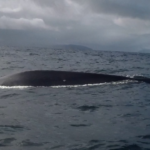



Norway: 10 V0c tags - Northern Norway, Svalbard and the Barents Sea
From June to July 2024, Team Noway will be deploying the first 10 V0c tags on minke and fin whales. The initial tags have already been successfully deployed, with more tags scheduled for deployment during the upcoming cruise, led by Steering Group member Martin Biuw, starting on June 19th.
Japan: 10 V0c tags - North Pacific Ocean
In August and September 2024, Team Japan will deploy 10 V0c tags on fin whales in the North Pacific Ocean.
Deployments of MINTAG V0b in 2024
Some members of the Steering Group tested the V0b version developed in 2023 during the spring and summer of 2024.
In April 2024, Mads Peter Heide-Jørgensen, chair of the MINTAG Steering Committee, tagged three bowhead whales in Disco Bay (West Greenland). One of the tags transmitted data for a full month!
Iceland: 10 V0c tags
From the 15th of August to the 15th of September will deploy 10 V0c tags on both minke and fin whales north of Iceland onboard of Einar í Nesi, led by Steering Group member Sverrir Daníel Halldórsson.
Iceland team started the effort to tag minke whales in Eyjafjörður north Iceland, last week.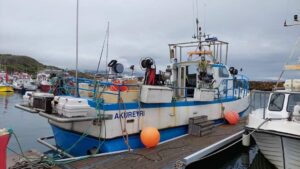
The aim is to deploy 10 tags in either minke whales or fin whales which both has been found in Eyjafjörður last days but deployment has not been successful at written time.
The weather has played some role as the autumn seem to arrive very early this year so it has disturbed the effort.
Deployment of 25 V0b tags - 2023
During the summer of 2023, 10 minke whale tags and 15 fin whale tags of the V0b generation will be deployed in the North Atlantic and North Pacific by four different groups.
Over the course of the summer, you will find here information on who is deploying the tags, in which areas they are deploying them and updates from the researchers themselves.
Follow the MINTAG on its first test run!
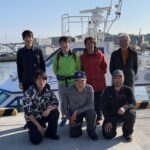
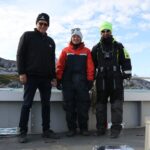

Japan: fin whale tags, Sea of Okhotsk
On the 5th of June 2023, Japan started as the first country to test five V0b fin whale tags. Steering Group member Kenji Konishi and his team went to the southern Sea of Okhotsk off Hokkaido to tag the whales on board of vessel Chipashiri. Two out of the five that were deployed transmitted location data.
Vessel Chipashiri:
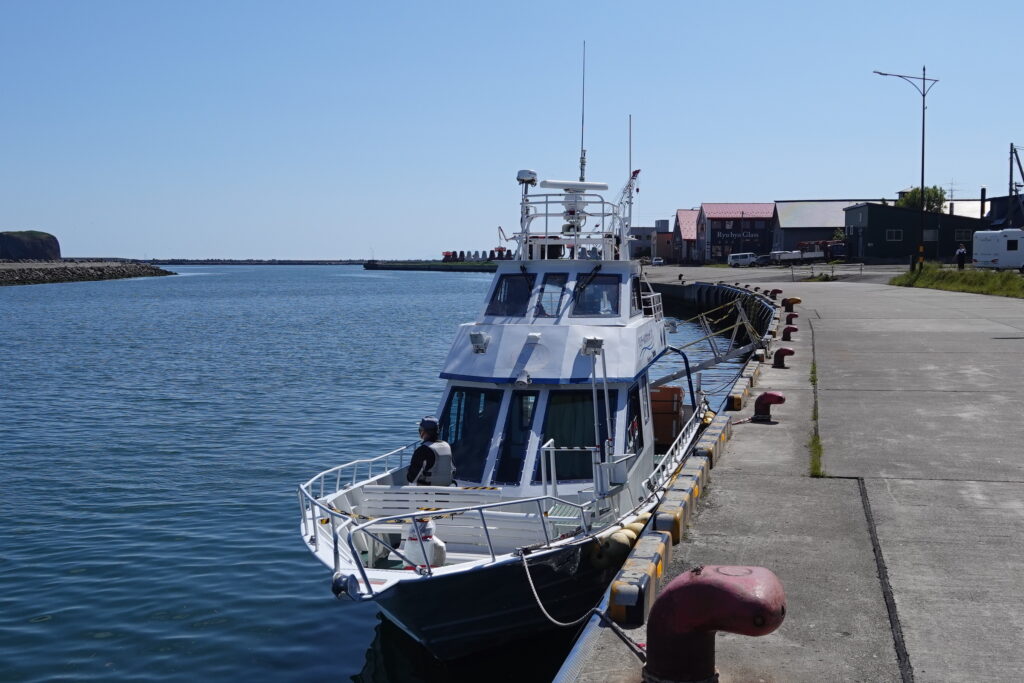
Kenji: Weather condition was good. We departed from Abashiri port at 06:00. Fin whales were not found in the area near shore, but several fin whales were found after two hours of searching. We deployed three MINTAGs and sampled skin tissue sample from one of the fin whales.
Kenji: Weather condition was super good when we departed from the port at 05:50. We could find fin whales earlier than during the survey on the 7th. We also found many Dall’s porpoises, bird’s beaked whales and shearwaters. We found four whales and deployed a MINTAG on a fin whale, but the weather turned too foggy and we lost visibility. We drifted for a while and started to search again, but we could not spot any fin whales.
Kenji: After a week of bad and foggy weather, we finally managed to deploy the last tag!
East Greenland: fin whale tags, Angmassilik fjord
From the 8th to the 17th August, Greenland started the second test of five V0b fin whale tags. Steering Group members Mads Peter Heide-Jörgensen and Rikke Guldborg Hansen as well as their team went to the Angmassilik fjord in East Greenland to tag fin whales.
All shots were made at distances between 8 and 15 m and four tags hit the whales while one missed and flew over. One tag transmitted locations for 17 days!
Why did Team Greenland choose this location?
The fjord is approximately 70 km long and 5 km wide. When you sail 50 km into the fjord you will arrive at the settlement called Kuummiut. There is a fish factory in town, a small supermarket, a school, a church and a community house and approximately 250 people call this place their home.
Listen to Rikke explaining why they chose this location:
What are the challenges of the trip?
Listen to Mads Peter explaining the challenges of the trip:
What makes the MINTAG project so exciting?
Mads Peter tells you his answer to this question here:
Rikke: I departed from Copenhagen and arrived in Kulusuk where Siggi (owner of the chartered boat) picked me up. We proceed to Tasiilaq to pick up Ababsi and the equipment that had arrived with ship a few weeks earlier.
We sailed onward to Kuummiut and arrived at 20:30. We saw fin whales in the fjord some kilometers from shore and immediately all pre-trip worries about finding fin whales vanished. Found the community house where we had rented a room.
Rikke: Ababsi and I calibrated the sight on the crossbow. Mads Peter arrived in the morning from Tasiilaq with the satellite tags. All tags found the correct location of Kuummiut and were re-activated when dropped in saltwater. The sight on the ARTS was calibrated and test shooting with both the carrier and the new tags were carried out in the evening. We saw some humpbacks and fin whales in the fjord in the afternoon while walking in the mountains.
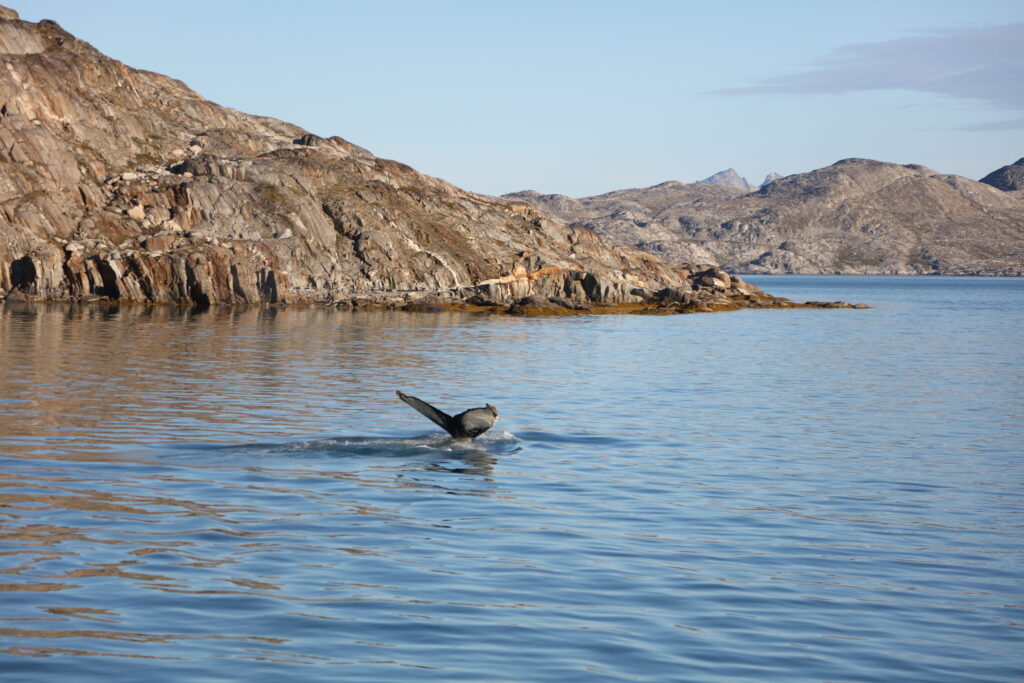
Rikke: We left Kuumiut at 3 pm to search for fin whales. We went into the fjord Ikaasak where we saw a humpback feeding on capelin close shore. We found several fin whales and observed their behavior for some hours. Our boat was to slow for approaching and the closest we got was 50m.
Rikke: We left Kuummiut at 11:15 and found a couple of fin whales in the fjord west of the town. There was also a sperm whale. We tried for 1.45 hrs to chase the whales from Siggi’s dinghy (Poca 500, 115 hp Mercury) but the whales reacted and moved quickly away so this approach was cancelled for the rest of the day.
We thereafter moved to Ikerasak where we passed a humpback whale within shooting distance while at the same time two fin whales were right behind the boat. No shooting at that opportunity. The wind was picking up and creating waves so we had to move inside the fjord where we found up to five whales in the bay opposite Kuummiut. Apparently the whales are circling around in Ammassalik fjorden and occasionally return to certain coastal areas often very close to the beach where gulf feeding intensively is practiced. The feeding events are also obvious from the concentration of diving kittiwakes.
Rikke: We left Kuummiut at 14h. We went for the coast line where the locals say fin whales feed and waited there 2 hours but only saw humpback whales. We then went to the fjord Ikaasak but no luck there either. We saw two fin whales in the main fjord and tried to hunt them down but never came within shooting distance. We then had discussions on the next step, i.e. hiring a different boat.
Mads Peter: After having tried approaching the fin whales with different types of boats inshore in East Greenland we finally tried with dinghies offshore and managed to hit a fin whale with four out of five shots.
At least three of the shots seemed to penetrate and embed completely, but it was uncertain if they went too deep.
Look at the map to follow the fin whales of East Greenland!
Norway: fin and minke whale tags, Svalbard and Northern Norway
In August and September 2023, the teams led by Christian Lydersen and Martin Biuw sailed around Svalbard on an effort to tag fin and minke whales respectively. The remaining tags were used in Skjervøy to further test the tags in humpback and killer whales in November 2023, by Audun Rikardsen and his team. In the map below you can follow the three successfully tagged minke whales.
